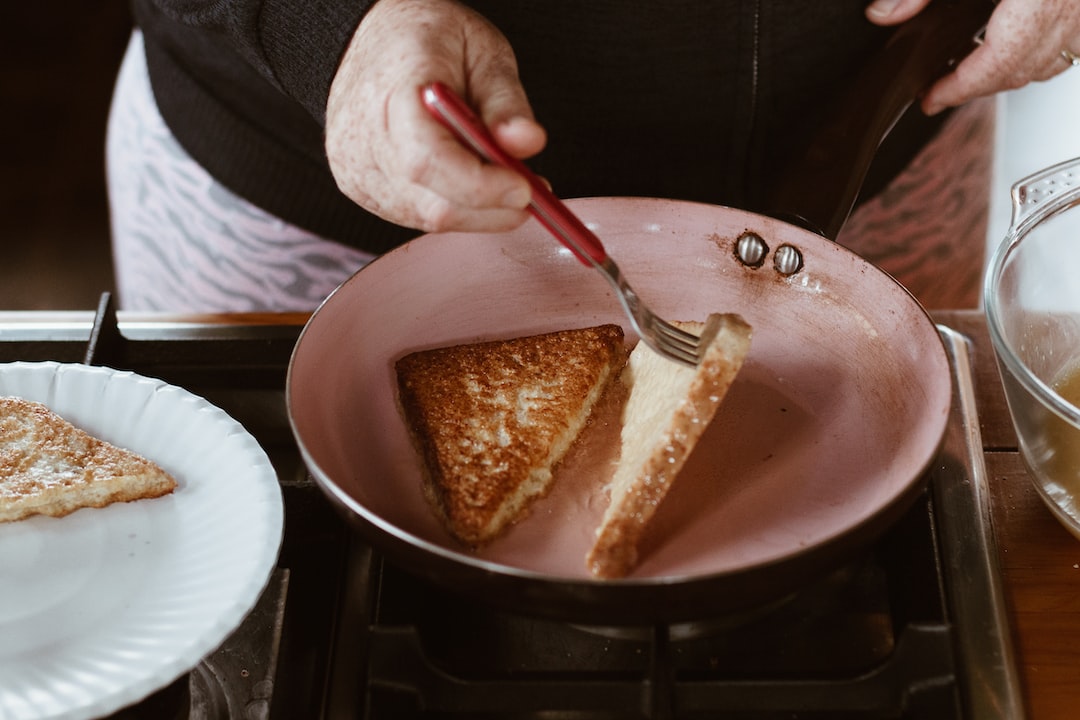[su_note note_color=”#ffe3e6″]This post contains affiliate links. Affiliate disclosure: As an Amazon Associate, we may earn commissions from qualifying purchases from Amazon.com and other Amazon websites.[/su_note]
Ladle of Contents
Key Takeaways:
– When choosing cooking utensils for stainless steel cookware, consider factors such as sustainability, ease of cleaning, heat resistance, and potential for scratching the cookware.
– Bamboo utensils are sustainable but require hand washing and occasional oiling.
– Wooden utensils are classic and environmentally friendly, but they stain easily and require regular oiling.
– Silicone utensils are affordable, heat resistant, and flexible, but some may contain fillers that reduce durability.
– Metal utensils are heavy duty and easy to clean, but they can cause superficial scratches on stainless steel cookware.
Bamboo Utensils: Sustainable and Eco-Friendly
Bamboo utensils have gained popularity in recent years due to their sustainability and eco-friendly nature. Bamboo is a fast-growing grass that can be harvested without killing the plant, making it a renewable resource. This makes bamboo utensils an excellent choice for environmentally conscious individuals.
One of the advantages of bamboo utensils is their natural resistance to heat and bacteria. They can withstand high temperatures without warping or melting, making them suitable for use with stainless steel cookware. Additionally, bamboo has natural antimicrobial properties, reducing the risk of cross-contamination during cooking.
However, it is important to note that bamboo utensils require special care. They should be hand washed with mild soap and warm water to prevent damage. It is also recommended to periodically oil the utensils to maintain their appearance and prevent drying out.
Wooden Utensils: Classic and Environmentally Friendly
Wooden utensils have been used in kitchens for centuries and are still a popular choice today. They are known for their classic and timeless appeal, adding a touch of warmth to any kitchen. Additionally, wooden utensils are biodegradable and do not contribute to landfill waste, making them an environmentally friendly option.
One of the advantages of wooden utensils is their gentle nature on stainless steel cookware. They are less likely to cause scratches or damage to the surface of the cookware compared to metal utensils. However, it is important to note that wooden utensils can stain easily, especially when used with strongly colored ingredients such as turmeric or tomato-based sauces.
To maintain the appearance and longevity of wooden utensils, regular oiling is necessary. This helps to prevent the wood from drying out and cracking. It is also recommended to hand wash wooden utensils with mild soap and warm water to avoid warping or splitting.
Silicone Utensils: Affordable and Heat Resistant
Silicone utensils have gained popularity in recent years due to their affordability, heat resistance, and flexibility. They are made from a synthetic material that can withstand high temperatures without melting or warping, making them suitable for use with stainless steel cookware.
One of the advantages of silicone utensils is their affordability. They are generally more budget-friendly compared to other types of utensils. Additionally, silicone utensils are flexible, allowing for easy maneuvering and scraping of food from the cookware.
However, it is important to note that not all silicone utensils are created equal. Some may contain fillers that reduce their durability and heat resistance. It is recommended to choose high-quality silicone utensils from reputable brands to ensure their longevity and safety.
Metal Utensils: Heavy Duty and Easy to Clean
Metal utensils, such as stainless steel or aluminum, are known for their durability and ease of cleaning. They are heavy duty and can withstand rigorous use in the kitchen. Additionally, metal utensils are dishwasher safe, making them convenient for those who prefer machine washing.
One of the advantages of metal utensils is their ability to handle high heat without melting or warping. They are ideal for tasks that require high temperatures, such as searing or frying. However, it is important to note that metal utensils can cause superficial scratches on the surface of stainless steel cookware.
To minimize the risk of scratching, it is recommended to use metal utensils with caution and avoid using excessive force. Additionally, it is advisable to choose utensils with rounded edges or silicone-coated tips to further reduce the risk of damage.
Conclusion:
When it comes to choosing the best cooking utensils for stainless steel cookware, there are several factors to consider. Bamboo utensils offer sustainability and heat resistance but require special care. Wooden utensils are classic and environmentally friendly but can stain easily and require regular oiling. Silicone utensils are affordable, heat resistant, and flexible but may vary in quality. Metal utensils are heavy duty and easy to clean but can cause superficial scratches on the cookware.
Ultimately, the choice of utensils depends on personal preferences and priorities. Whether you prioritize sustainability, durability, or ease of cleaning, there is a wide range of options available to suit your needs. By considering the advantages and considerations of each type of utensil, you can make an informed decision and enhance your cooking experience with stainless steel cookware.



